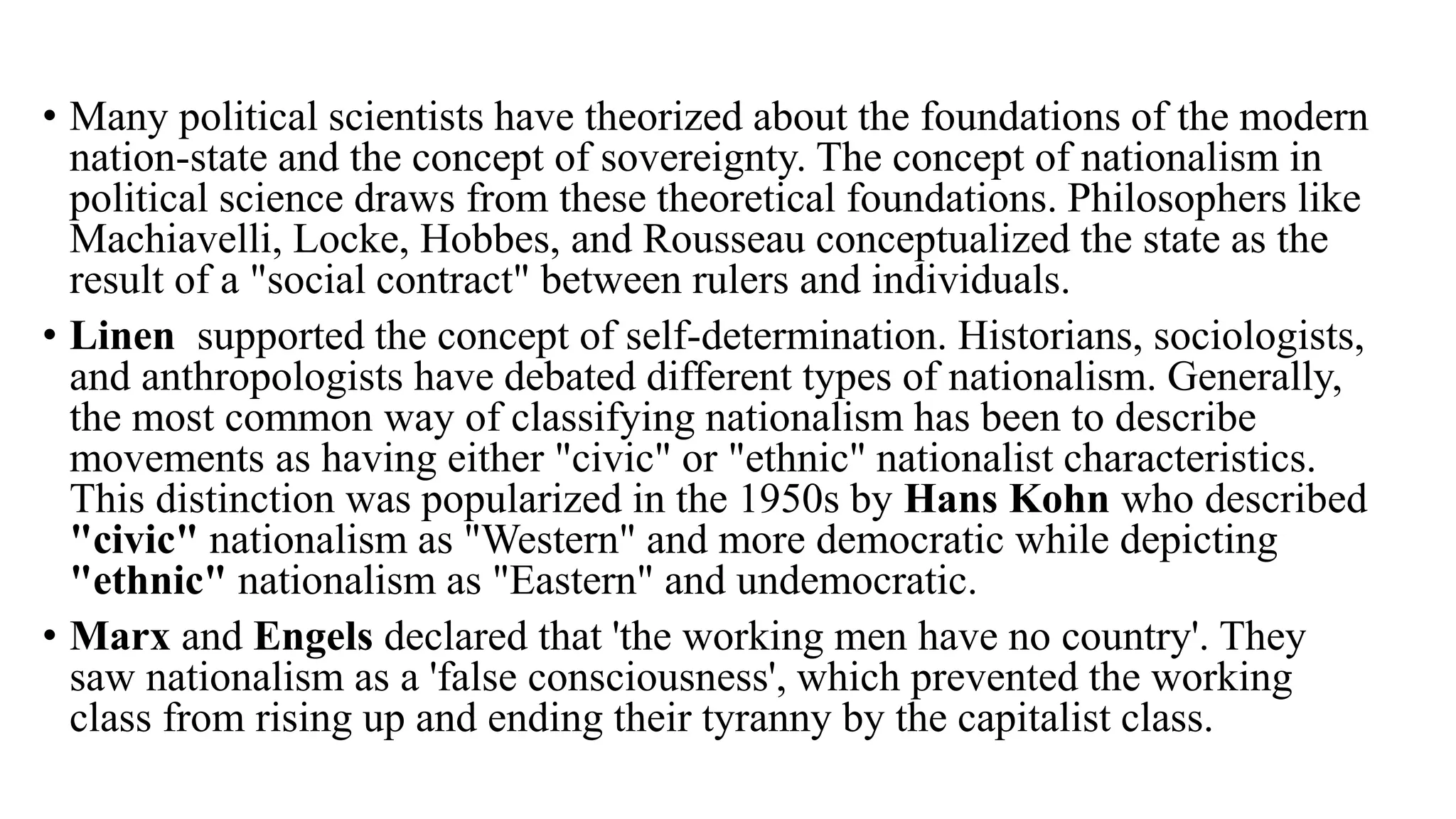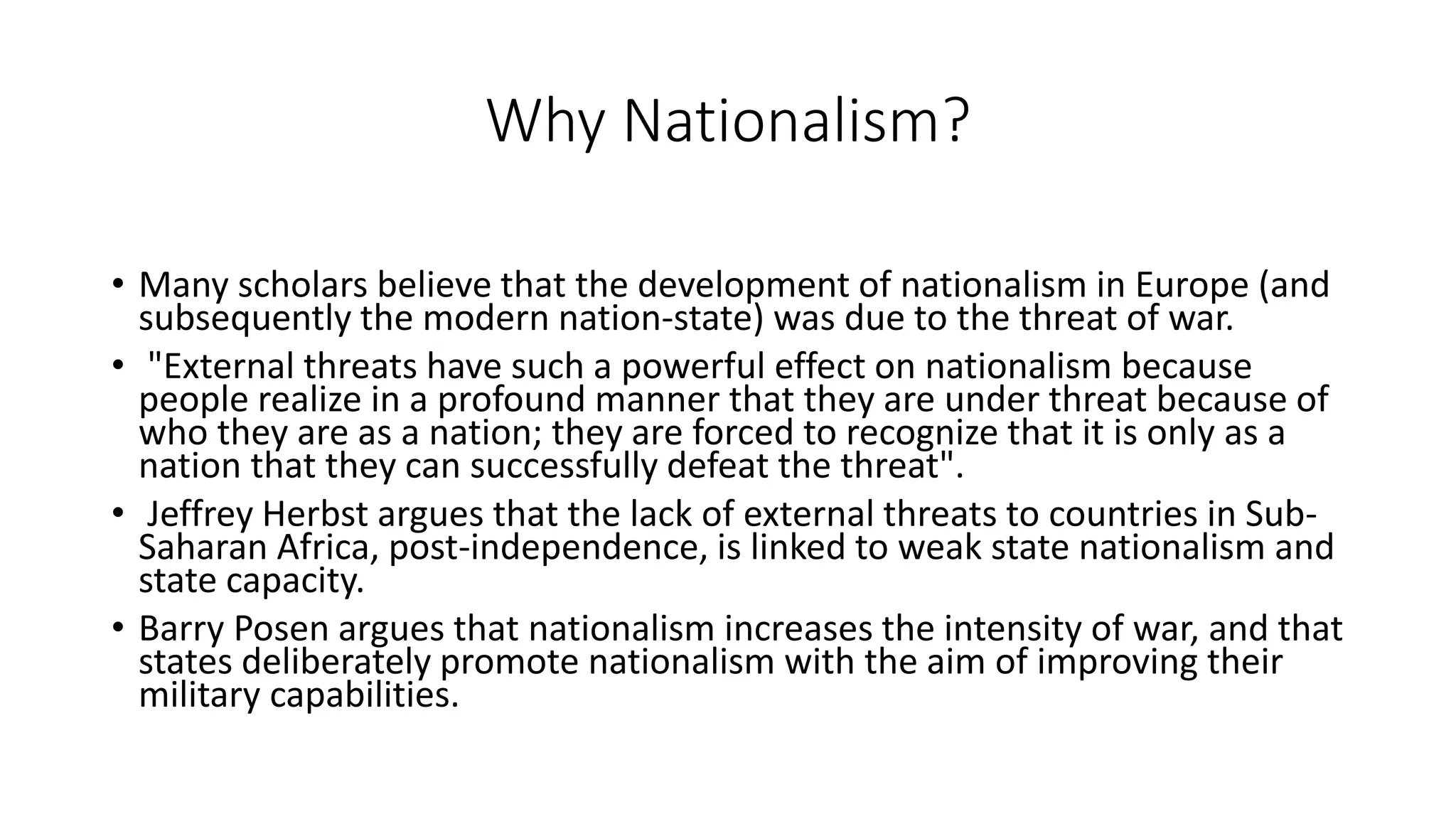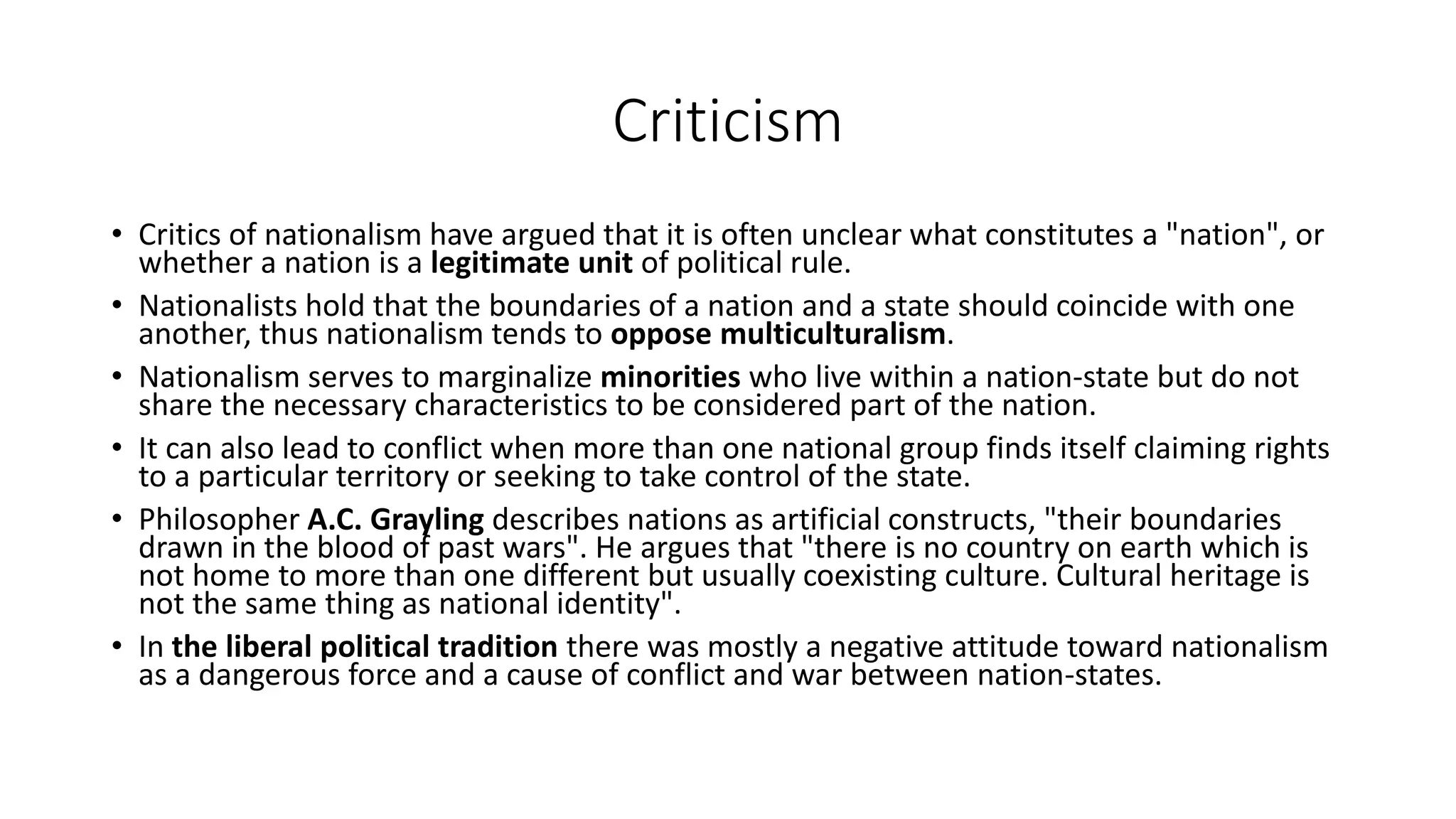Nationalism is a political ideology that promotes a national identity based on shared characteristics. It holds that a nation should govern itself independently and maintain its unique culture and national symbols. There are different types of nationalism such as civic nationalism which defines the nation based on shared political values rather than ethnicity, and ethnic nationalism which ties national identity to a shared heritage and ancestry. Nationalism is seen by some as a way for a threatened nation to unite against external threats but others criticize it as an artificial construct that can marginalize minorities and increase conflict.











